soule: We are witnessing an overt attempt by the federal government to limit our rights under the 2nd Amendment to the Bill of Rights, The United States Constitution.
In view of this, I have posted the following link for additional information we may or may not know regarding the 2nd Amendment:
I have selected only certain excerpts of this article I feel are relevant to the issue at hand (without being too wordy). The entire article can be accessed at the above link.
The underscoring you see below is my own.
This link will answer the question of why the anti-Federalists believed so strongly in Americans' right to keep and bear arms:
"Moreover, a survey of the contemporaneous history also demonstrated clearly that the Fourteenth Amendment's Framers and ratifiers counted the right to keep and bear arms among those fundamental rights necessary to the Nation's system of ordered liberty.
-------------------------------------------------------------------------------------------------------------------------------------------------------------------
another good source for information is: www.guncite.com/journals/senrpt/fgd-guar.html:
The Second Amendment to the Constitution Guarantees an Individual Right to Keep and Bear Arms:
a. common law development of the right to keep and bear arms
The right to keep and bear arms was not created by the Second Amendment; rather, this basic individual right, developed in England before this continent was colonized, pre-dated the constitution and was part of the common law heritage of the thirteen original colonies.
Sir William Blackstone, an authoritative source of the common law for colonists and, therefore, a dominant influence on the drafters of the original Constitution and its Bill of Rights, set forth in his Commentaries the absolute rights of individuals as: personal security, personal liberty, and possession of private property,
I Blackstone Commentaries 129, these absolute rights being protected by the individual's right to have and use arms for self-preservation and defense. As Blackstone observed, individual citizens were therefore entitled to exercise their "natural right of resistance and self-preservation, when the sanctions of society and laws are found insufficient to restrain the violence of oppression."
Id. at 144.
[1] Clearly evident in this statement is Blackstone's recognition that the exercise of an individual's absolute rights could be imperiled by a standing army as well as by private individuals, a view supported by his observation that "Nothing ... ought to be more guarded against in a free state than making the military power ... a body too distinct from the people."
Id. at 414. To prevent such an occurrence, Blackstone not only believed in the individual's right to have and use arms, but further believed that for its defense a nation should rely not on a standing army, but the citizen soldier. Plainly, for such a concept to be a reality, it was necessary that all able-bodied males possess and be capable of using arms.
Blackstone was not alone in his view that the common law recognized the individual's right to possess arms: in his Pleas of the (p.84)Crown, Hawkins noted that "every private person seems to be authorized by the Law to arm himself for [various] purposes." 1 William Hawkins, Pleas of the Crown, ch. 28, Section 14, p. 171 (7th ed. 1795). In agreement with Blackstone was Sir Edward Coke who wrote that "the laws permit the taking up of arms against armed persons," 2 E. Coke Institutes of the Laws of England, 574 (Johnson & Warner, ed. 1812).
It was within this legal tradition of the individual's right to have and use arms for his own defense and self-preservation as well as to enable him to contribute to the common defense, that the spark which ignited the American Revolution was struck. The British, by attempting to seize large stores of powder and shot, sought to deny the Massachusetts colonists the ability to protect their absolute rights. The colonists retaliated by exercising their common law right to keep and bear arms, using the very arms which the British wished to render ineffective.
[2] It is beyond question that prior to the Second amendment the common law recognized a fundamental individual right to keep and bear arms, subject only to a certain limited police power to regulate the bearing of arms so as not to terrify the good people of the land.
4 Blackstone Commentaries 149.
b. the history of the second amendment
The Second amendment to the United States Constitution provides:
A well regulated Militia, being necessary to the security of a free State, the right of the people to keep and bear Arms shall not be infringed.
The history of the Second Amendment indicates that its purposes were to secure to each individual the right to keep and bear arms so that he could protect his absolute individual rights as well as carry out his obligation to assist in the common defense. It is evident that the framers of the Constitution did not intend to limit the right to keep and bear arms to a formal military body or organized militia, but intended to provide for an "unorganized" armed citizenry prepared to assist in the common defense against a foreign invader or a domestic tyrant. This concept of an unorganized, armed citizenry clearly recognized the right, and moreover the duty, to keep and bear arms in an individual capacity.
One of the gravest decisions faced by the Framers of the Constitution was whether the federal government should be permitted to maintain a standing army. Because of their personal experiences in and prior to the Revolution, the Framers of the Constitution realized that although useful for national defense, a standing army was particularly inimical to the continued safe existence of those absolute rights recognized by Blackstone and generally inimical to personal freedom and liberty.
Unwilling, however, to forego completely the national defense benefits of a standing army, the Framers developed a compromise position. The federal government was granted the authority to "raise and support" an army, subject to the restrictions that no appropriation of money for the army would be for more than two years and civilian control over the army would be maintained.
U.S. Constitution. Article I, Section 8, Clause 12. Furthermore, knowing
(p.85)that the militiaman or citizen soldier had made possible the success of the American Revolution for Independence,
[3] the Framers recognized that a militia would provide the final bulwark against both domestic tyranny and foreign invasion. Congress, however, was given only limited authority over the militia; it could "govern ... [only] such part of the [the militia] as may be employed in the Service of the United States ...," leaving to the states "the Appointment of the Officers, and the Authority of training the Militia ..." (emphasis added)
U.S. Constitution, Article I, Section 8, Clause 16.
It is evident from the underscored language of Clause 16 that, in addition to that part of the militia over which the Constitution granted Congress authority, there exists a residual, unorganized militia that is not subject to congressional control. The United States Code, in Title 10, Section 311, continues to recognize the distinction between the organized and unorganized militia:





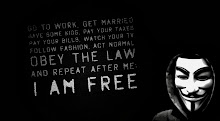



























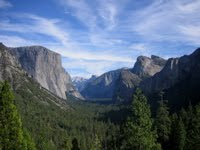


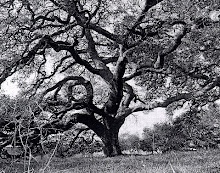



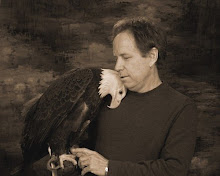
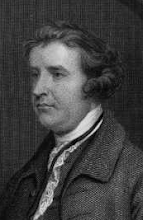



No comments:
Post a Comment